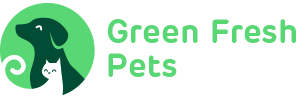
Why should you never feed your dog or puppy cow or other bovine milk?
If your kid with four legs loves dairy products, this article will upset you. An occasional treat with a small amount of cow milk or other bovine milk is okay, but offering your canine kid an entire bowl is strongly prohibited. It can cause long-term health issues, including stomach upset, diarrheas’, obesity, and pancreatitis due to the fat, calories, and lactose present in it.
Here we will discuss the health issues caused by milk and other dairy products:
Your dog’s digestive system cannot break down high levels of fat quickly, so feeding them a lot of saturated fat and natural sugar, especially whole milk, could cause stomach issues, swelling, and other digestive difficulties. The negative consequences of consuming a diet high in fat for an extended period may include an elevated chance of heart disease and pancreas inflammation (pancreatitis).
Many dogs are unable to digest dairy products such as cow’s milk, cheddar cheese, and ice cream due to their lack of the digestive enzyme lactose, similar to how humans can be lactose intolerant. While it’s acceptable to let your pup take a lick or two of your ice cream or sip from your mug, you should avoid letting them consume large amounts of milk and other dairy products unless they are not allergic to them.
Dogs are frequently allergic to milk products, making them one of the most widespread food allergies. Signs of lactose intolerance in canines consist of swelling, passing gas, an irritated stomach, abdominal discomfort, soft stools, and watery bowel movements.
It is important for dogs to consume fewer calories than humans and to be mindful of calorie-dense drinks like milk that can easily push them over their daily limit to avoid weight gain. Over time, consuming too many calories can lead to weight gain and obesity, which can have serious impacts on one’s health.
Other visible signs your dog may have a milk allergy, or a food allergy in general, can include:
- Itchiness
- Licking at their paws
- Red, irritated skin
- Hair loss
- Having difficulty passing stools.
- Ear infections
- Occasionally, seizures, bronchitis, and chronic obstructive pulmonary disease may also be present.
Reasons Why Dogs Are Allergic to Milk
Here are some very common reasons behind dogs being allergic to milk.
- Many dogs, like human beings, develop allergies in response to proteins.
- Food sensitivities are not as widespread as allergies to airborne particles.
- Conditions that occur alongside an allergy can make diagnosis more challenging.
- The age of the dog could be a factor in the development of allergies.
- One’s response to certain foods can be classified as either a food allergy or intolerance, such as a milk allergy or lactose intolerance.
Alternatives of milk for your canine kid
If your dog loves the taste of dairy food and is a picky eater, offer a healthier alternative, like a bowl of frozen yogurt, for them to enjoy. Give your pup a frozen treat: Instead of allowing your four-legged kid to lick the last bit of ice cream from your bowl, provide them with a healthier option by serving them a cool bowl of frozen yogurt. This snack is not only more nutritious but also just as tasty! Create a treat for your pooch by combining peanut butter and yogurt, which has beneficial probiotics for canines. Put the food in a container, such as a bowl, an ice cube tray, or a puzzle toy, and give it to your pup as a special snack.
Ending note
It’s a well-known fact that dogs are big fans of dairy products! With the right ingredients, you can give your furry friends milk-based snacks like Himalayan Yak Chew that will make them happy.


